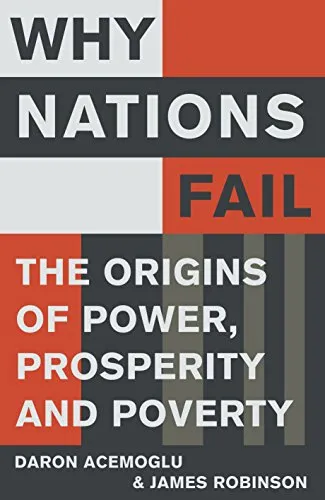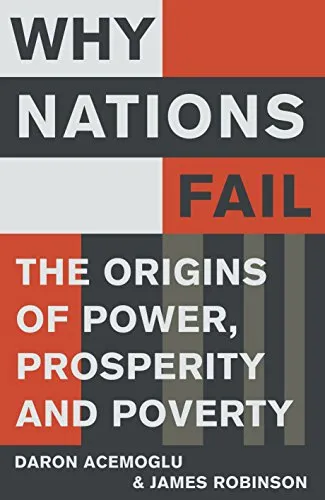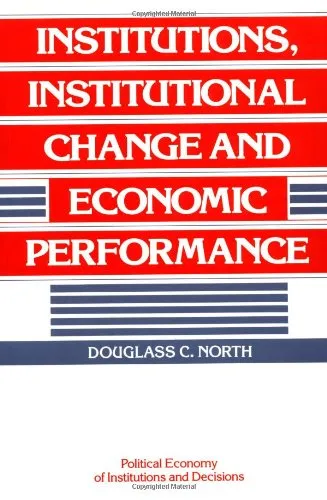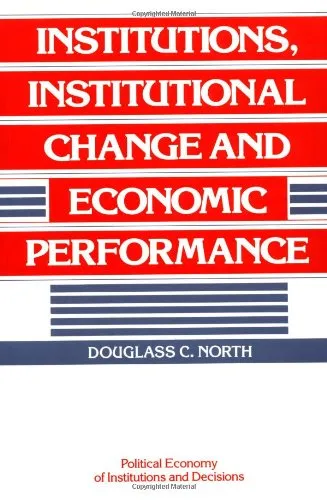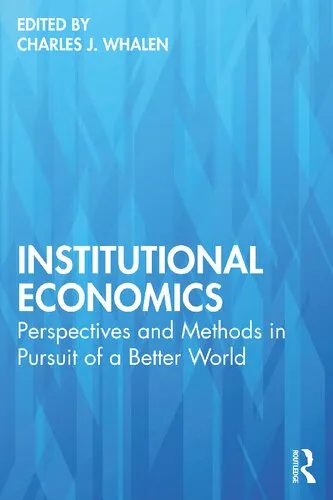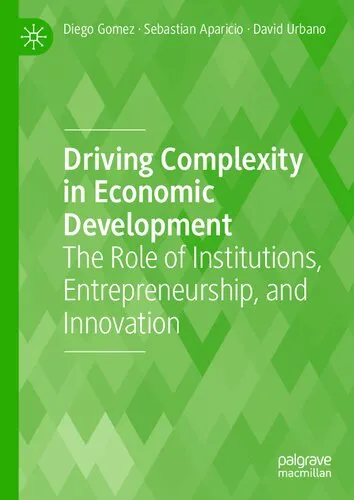Economic Behavior and Institutions: Principles of Neoinstitutional Economics (Cambridge Surveys of Economic Literature)
4.0
Reviews from our users

You Can Ask your questions from this book's AI after Login
Each download or ask from book AI costs 2 points. To earn more free points, please visit the Points Guide Page and complete some valuable actions.Related Refrences:
Introduction to Economic Behavior and Institutions: Principles of Neoinstitutional Economics
Economic Behavior and Institutions: Principles of Neoinstitutional Economics is a foundational book that explores the intricate interplay between economic decision-making and institutional frameworks. Authored by Thráinn Eggertsson, this seminal text serves as a comprehensive introduction to the principles and methodologies of neoinstitutional economics, a field that extends beyond traditional economic theories to analyze how institutions shape human behavior and economic outcomes. The book is part of the prestigious "Cambridge Surveys of Economic Literature" series, and it delves into key topics such as property rights, transaction costs, information asymmetries, and the role of formal and informal rules in shaping economic activity.
Eggertsson combines theoretical rigor with real-world applications, making the text indispensable for students, researchers, and practitioners seeking a deeper understanding of economic behavior within institutional contexts. Readers are guided through a logical progression of concepts and case studies, offering both intellectual depth and practical insight.
Detailed Summary of the Book
At its core, the book is a comprehensive survey and analysis of neoinstitutional economics. It begins with an exploration of traditional economic assumptions, such as rational behavior and utility maximization, while introducing the limitations of these models in addressing real-world problems. Building on this foundation, Eggertsson discusses how institutions—defined as rules, norms, and constraints—emerge to shape and coordinate human interaction.
Key topics covered include the significance of property rights in economic systems and how the absence or inefficiency of these rights can lead to market failures. Eggertsson also addresses the concept of transaction costs, emphasizing their critical role in determining the structure and functioning of economic systems. His analysis of information asymmetries provides insight into why markets are often inefficient in the absence of mechanisms to address imbalances in knowledge between economic agents.
The latter chapters of the book shift focus to dynamic issues such as institutional change, the interplay between formal and informal institutions, and how societies develop legal and economic structures over time. Eggertsson integrates a multidisciplinary approach, drawing from economics, political science, sociology, and history to provide a nuanced analysis of institutional evolution. The text is rich in theoretical frameworks, but it also features examples and case studies that illustrate the practical application of these ideas in both developed and developing economies.
Key Takeaways
- Institutions play a central role in shaping economic behavior and outcomes, influencing everything from market efficiency to societal development.
- Transaction costs and property rights are essential determinants of economic systems, affecting how resources are allocated and utilized.
- Information asymmetries and bounded rationality challenge traditional economic assumptions, necessitating institutional responses to address inefficiencies.
- The interplay between formal (laws, regulations) and informal (customs, traditions) institutions governs the stability and adaptability of economic systems.
- Understanding institutional change is key to designing policies that promote economic development, reduce inequality, and address systemic failures.
Famous Quotes from the Book
- "Economic behavior is not an isolated phenomenon; it is deeply embedded in the institutional framework that governs human interaction."
- "Institutions are not merely constraints; they are the rules of the game that structure incentives and shape human decision-making."
- "Transaction costs are the friction in the machinery of economic exchange, determining whether or not markets can function effectively."
- "Efficient property rights are the linchpin of any stable economic order, enabling innovation, investment, and cooperation on a societal scale."
Why This Book Matters
This book is more relevant today than ever before. As economies become increasingly complex and interconnected, understanding the role of institutions is crucial to addressing challenges such as inequality, corruption, and market failures. Eggertsson's work lays the theoretical and practical groundwork for examining these issues, bridging the gap between abstract economic theory and the real-world constraints that societies face.
The book provides policymakers with a framework to design better governance structures, entrepreneurs with insights into institutional barriers to innovation, and academics with a comprehensive survey of neoinstitutional economics. Its interdisciplinary focus ensures its applicability across a wide range of fields, from economics and political science to law and development studies.
In a fragmented and polarized world, Economic Behavior and Institutions reminds us of the critical role institutions play in fostering cooperation, stability, and progress.
Free Direct Download
You Can Download this book after Login
Accessing books through legal platforms and public libraries not only supports the rights of authors and publishers but also contributes to the sustainability of reading culture. Before downloading, please take a moment to consider these options.
Find this book on other platforms:
WorldCat helps you find books in libraries worldwide.
See ratings, reviews, and discussions on Goodreads.
Find and buy rare or used books on AbeBooks.
1406
بازدید4.0
امتیاز0
نظر98%
رضایتReviews:
4.0
Based on 0 users review
Questions & Answers
Ask questions about this book or help others by answering
No questions yet. Be the first to ask!


